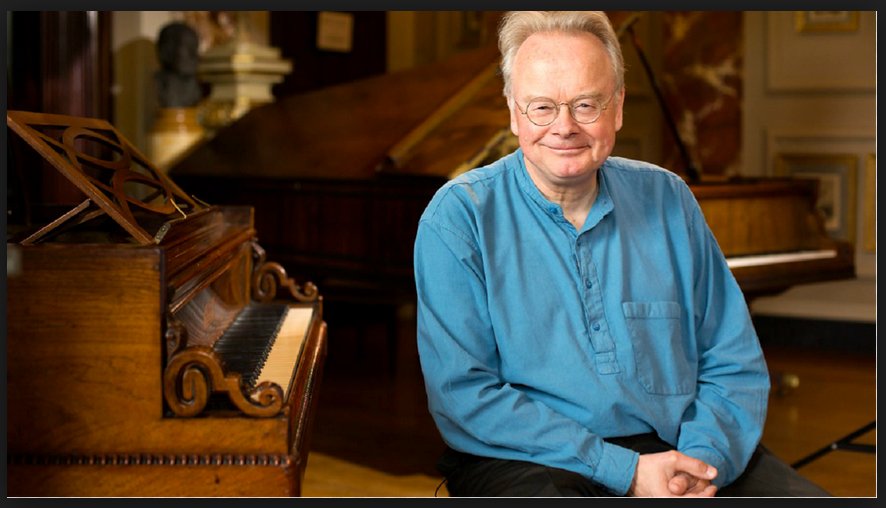

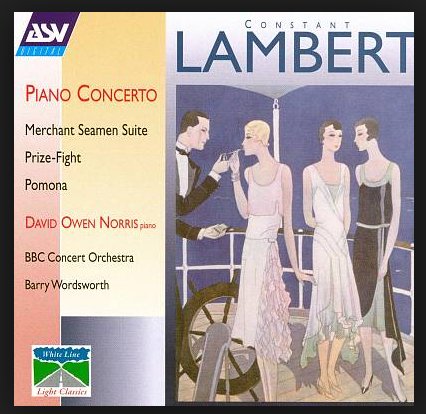 BD: Time flies when you’re having fun?
BD: Time flies when you’re having fun?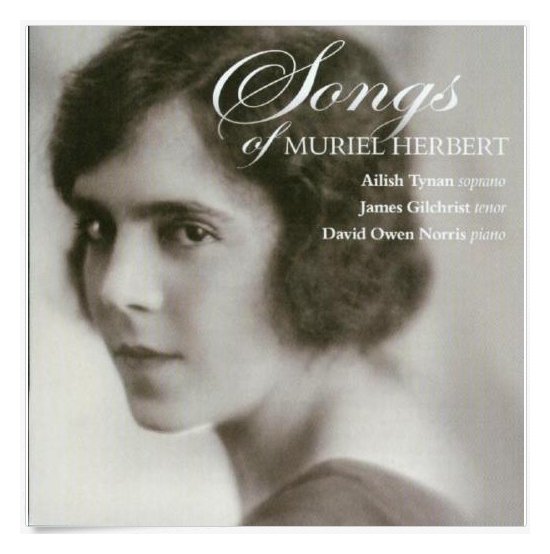 DON: The most important thing is finding out about
songs. Simply that! Finding out what the song can encourage us
to do. I’ve just been working with a marvelous soprano who has a wonderful
creamy voice, a little bit like Jessye Norman in some ways.
DON: The most important thing is finding out about
songs. Simply that! Finding out what the song can encourage us
to do. I’ve just been working with a marvelous soprano who has a wonderful
creamy voice, a little bit like Jessye Norman in some ways.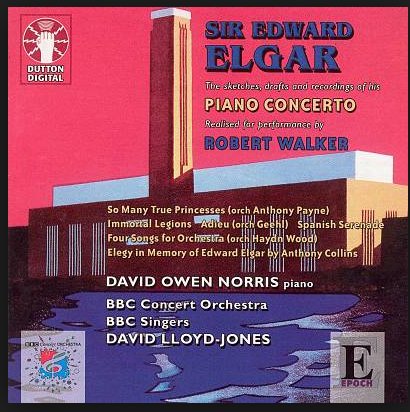 DON: The reason they go into opera is that opera
— Praise be! — is getting very popular and
there’s money in it. Because people like it, they’ll pay to come
and go to it, and that’s wonderful. The sad thing about the singing
world over the last twenty or thirty years has been that the audience for
the song recital has got smaller. But it hasn’t gotten as much smaller
as the operatic audience has gotten larger. The two have been unrelated.
I feel the song recital has been dying for some considerable time, and now,
unrelated to that, opera is having a big ‘up’, and I’m hoping that people,
who love voices and who love opera will be able to have their attention diverted
to this other sort of vocal music — the song
— which is more difficult to appreciate. Precisely because
of this different narration technique that song uses, the audience has to
become part of the drama, and that can be terribly embarrassing, particularly
if you are being sung at in a language which you don’t know. Opera
tends to deal with fairly raw emotions which we can all appreciate.
There are some films on television that you could watch with the sound turned
down, and you can still understand what happens. I was watching High Noon the other day, and I lost the
sound for some reason for about the last half hour of it, and it didn’t spoil
my enjoyment one bit because you could still see him dashing about.
Opera is a little bit like that in relation to the language problem.
If you don’t understand every word, often it doesn’t matter. It’s like
watching High Noon without listening
to the dialogue. You can see that’s a bad guy this is a good guy, and
they’re having a tussle. Now in the song, of course, the language is
much more important, and that’s a big difficulty, so the audience might be
involved, whereas in an opera, the singer is obviously singing to the audience,
but he’s not addressing the audience as a character in the drama. He’s
usually another character, or he’s engaging in a dramatic soliloquy,
and we feel that we can sit back and let that wash over us a little bit.
DON: The reason they go into opera is that opera
— Praise be! — is getting very popular and
there’s money in it. Because people like it, they’ll pay to come
and go to it, and that’s wonderful. The sad thing about the singing
world over the last twenty or thirty years has been that the audience for
the song recital has got smaller. But it hasn’t gotten as much smaller
as the operatic audience has gotten larger. The two have been unrelated.
I feel the song recital has been dying for some considerable time, and now,
unrelated to that, opera is having a big ‘up’, and I’m hoping that people,
who love voices and who love opera will be able to have their attention diverted
to this other sort of vocal music — the song
— which is more difficult to appreciate. Precisely because
of this different narration technique that song uses, the audience has to
become part of the drama, and that can be terribly embarrassing, particularly
if you are being sung at in a language which you don’t know. Opera
tends to deal with fairly raw emotions which we can all appreciate.
There are some films on television that you could watch with the sound turned
down, and you can still understand what happens. I was watching High Noon the other day, and I lost the
sound for some reason for about the last half hour of it, and it didn’t spoil
my enjoyment one bit because you could still see him dashing about.
Opera is a little bit like that in relation to the language problem.
If you don’t understand every word, often it doesn’t matter. It’s like
watching High Noon without listening
to the dialogue. You can see that’s a bad guy this is a good guy, and
they’re having a tussle. Now in the song, of course, the language is
much more important, and that’s a big difficulty, so the audience might be
involved, whereas in an opera, the singer is obviously singing to the audience,
but he’s not addressing the audience as a character in the drama. He’s
usually another character, or he’s engaging in a dramatic soliloquy,
and we feel that we can sit back and let that wash over us a little bit.
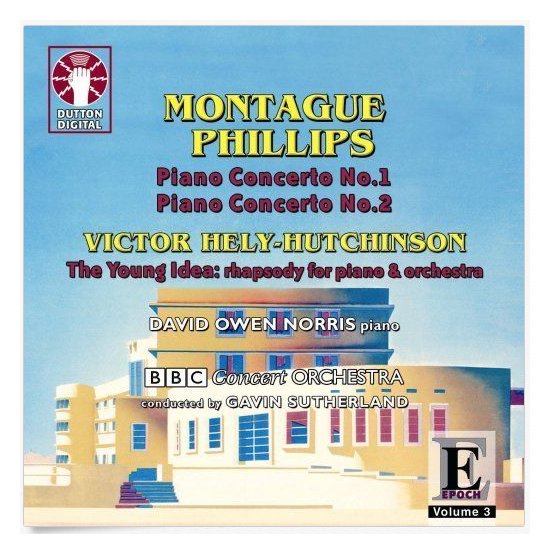 BD:
Oh, heavens!
BD:
Oh, heavens! 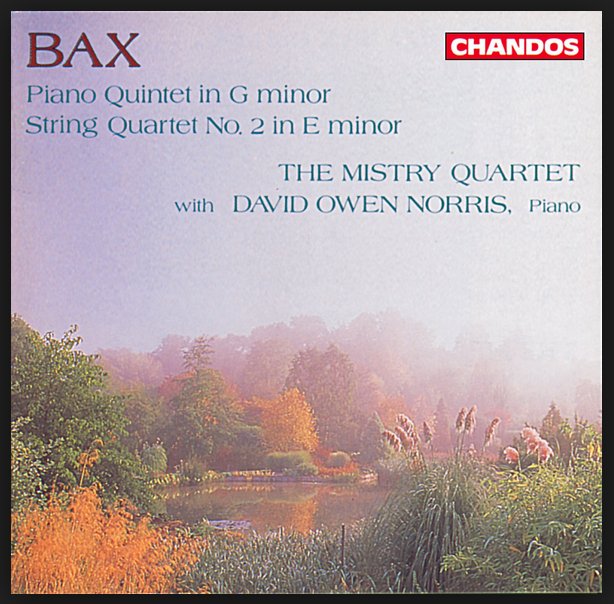 DON:
It’s very satisfying for the pianist, and awfully frustrating for the singer.
I try never to do operatic repetiteuring these days because I found it was
very tedious in the end, in particular you were working with the same voices
again and again. ‘Repetiteur’
is what it implies — you do it, and you do it, and
you do it, and you do it until they’ve learned it, and while it’s fascinating
to explore a new voice doing something, you usually have to spend a month
to work on one aria with one person who may be still finding it difficult
at the end. I’ve come across people like that. Speaking from
a musicianship point of view, a lot of very good singers particularly are
coming in increasing numbers into the profession, but one of the things that
is important is that you can’t really sight-read when you’re singing.
Some singers can sight-read of course, but they don’t sing so well while
they are sight-reading. It’s a particularly noticeable problem in singing.
You need to know exactly where you’ve got to throw the voice and where you’ve
got to poise the larynx, where you’ve got to go, and so on, and get that
all so smoothly working right at the beginning of a breath. We’ve got
to look ahead and predict your breath and everything. But vocal sight-reading
is fraught with pitfalls. Compared to the real world, in the opera
houses especially where there always seems to be masses of time to learn
things at somebody else’s expense, and that’s what really peeves me.
Singers get paid for rehearsals in opera houses, but I don’t get paid for
rehearsals. I’m supposed to know it! But anyway, the sight-reading
becomes very much at the bottom of their professional priorities, and let’s
face it, it needs to be second nature for them. So this idea somebody
could spend a month learning an aria and still get it wrong at the end of
it, is just showing how thorough they’re being! [Laughs] God,
it’s dull!
DON:
It’s very satisfying for the pianist, and awfully frustrating for the singer.
I try never to do operatic repetiteuring these days because I found it was
very tedious in the end, in particular you were working with the same voices
again and again. ‘Repetiteur’
is what it implies — you do it, and you do it, and
you do it, and you do it until they’ve learned it, and while it’s fascinating
to explore a new voice doing something, you usually have to spend a month
to work on one aria with one person who may be still finding it difficult
at the end. I’ve come across people like that. Speaking from
a musicianship point of view, a lot of very good singers particularly are
coming in increasing numbers into the profession, but one of the things that
is important is that you can’t really sight-read when you’re singing.
Some singers can sight-read of course, but they don’t sing so well while
they are sight-reading. It’s a particularly noticeable problem in singing.
You need to know exactly where you’ve got to throw the voice and where you’ve
got to poise the larynx, where you’ve got to go, and so on, and get that
all so smoothly working right at the beginning of a breath. We’ve got
to look ahead and predict your breath and everything. But vocal sight-reading
is fraught with pitfalls. Compared to the real world, in the opera
houses especially where there always seems to be masses of time to learn
things at somebody else’s expense, and that’s what really peeves me.
Singers get paid for rehearsals in opera houses, but I don’t get paid for
rehearsals. I’m supposed to know it! But anyway, the sight-reading
becomes very much at the bottom of their professional priorities, and let’s
face it, it needs to be second nature for them. So this idea somebody
could spend a month learning an aria and still get it wrong at the end of
it, is just showing how thorough they’re being! [Laughs] God,
it’s dull!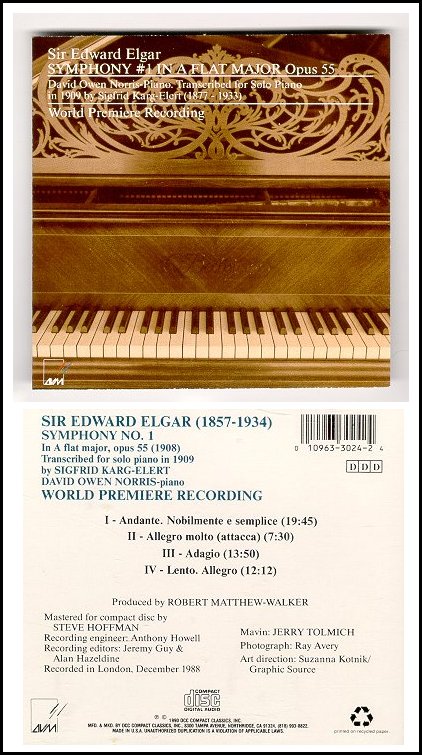 DON: I suppose that’s a repetiteur’s dream, isn’t
it, to be able to play a symphony.
DON: I suppose that’s a repetiteur’s dream, isn’t
it, to be able to play a symphony.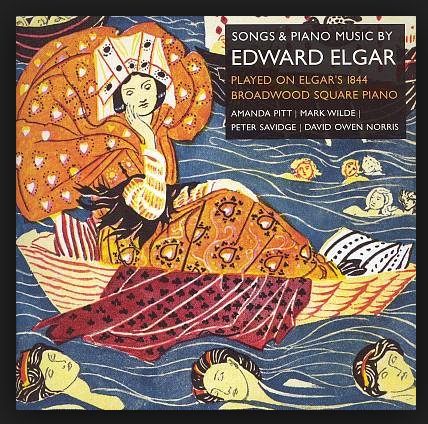 DON:
Quite, quite! Let me put my finger on it because I have found an answer
to this, and the answer is to say that the question is wrong, [laughs] as
so many answers are. But if you take my answer, then you don’t need
a question. My answer to it is that music not an object but an activity,
and the sound of the music is merely the proof that somewhere there is some
music going on, and the music is the activity of doing it. Now obviously
this is a means at looking at music that occurs naturally to a chamber music
player and song accompanist, such as a I am, much more than to a solo pianist,
which I also am. In my solo piano playing, I try to make the activity
of my mind engage with the marks on a page by somebody long dead. That
is the point of what we’re listening to, not the actual sounds that I come
out with, which might be different every time and should be different every
time. Your great composer, Charles Ives, said that. He said one
of the greatest simplicities about music. He said that if you’ve been
digging potatoes, play it like you’ve been digging potatoes. If you’ve
been reading a great novel, play it like you’ve been reading a great novel.
He thought what you were doing and what you were should affect the way that
you related to his music in order to produce the music.
DON:
Quite, quite! Let me put my finger on it because I have found an answer
to this, and the answer is to say that the question is wrong, [laughs] as
so many answers are. But if you take my answer, then you don’t need
a question. My answer to it is that music not an object but an activity,
and the sound of the music is merely the proof that somewhere there is some
music going on, and the music is the activity of doing it. Now obviously
this is a means at looking at music that occurs naturally to a chamber music
player and song accompanist, such as a I am, much more than to a solo pianist,
which I also am. In my solo piano playing, I try to make the activity
of my mind engage with the marks on a page by somebody long dead. That
is the point of what we’re listening to, not the actual sounds that I come
out with, which might be different every time and should be different every
time. Your great composer, Charles Ives, said that. He said one
of the greatest simplicities about music. He said that if you’ve been
digging potatoes, play it like you’ve been digging potatoes. If you’ve
been reading a great novel, play it like you’ve been reading a great novel.
He thought what you were doing and what you were should affect the way that
you related to his music in order to produce the music.| The Gilmore Artist Award is awarded
every four years to a concert pianist. The award was established in 1989
by the Irving S. Gilmore Foundation of Kalamazoo, Michigan. In contrast with
other music awards, nominees are not aware that they are under consideration,
but are assessed discreetly over a period of time through live performances
and recordings. The prize money is $300,000, of which $50,000 to be spent
as the winner desires and $250,000 to be used for career development.
David Owen Norris was the first recipient of this award in 1991. Subsequent
recipients included Ralf
Gothóni (1994), Leif Ove Andsnes (1998),
and Piotr Anderszewski (2002). |
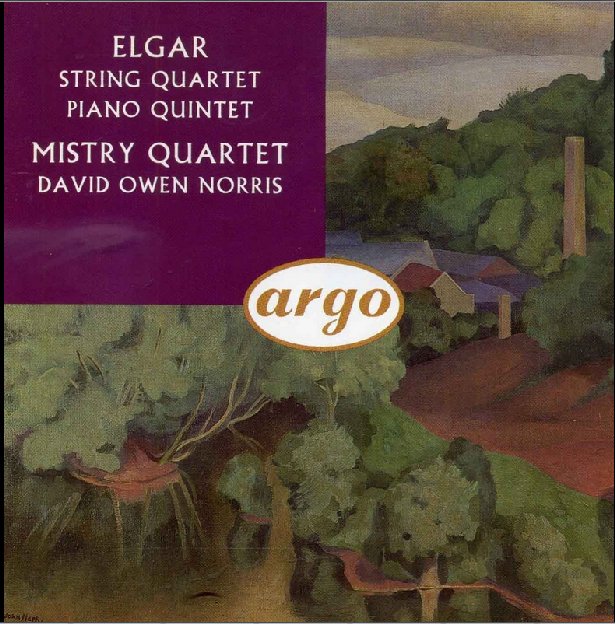 BD: I would think that you would be a wonderful conductor
of at least one piece – the Elgar First.
BD: I would think that you would be a wonderful conductor
of at least one piece – the Elgar First.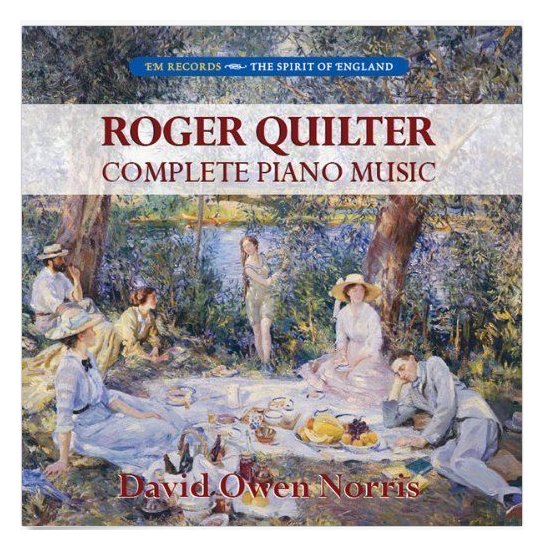 DON: That’s true, yes. The thing about me
being a piano concerto pianist is that there are so many other wonderful
piano concerto pianists. You need to be realistic about this.
There are some piano concertos that I can bring something new to, and there
are many I know I can’t, and I’d much rather leave those to pianists who
find them new and fresh. That’s one reason why I wouldn’t make myself
into a piano concerto pianist.
DON: That’s true, yes. The thing about me
being a piano concerto pianist is that there are so many other wonderful
piano concerto pianists. You need to be realistic about this.
There are some piano concertos that I can bring something new to, and there
are many I know I can’t, and I’d much rather leave those to pianists who
find them new and fresh. That’s one reason why I wouldn’t make myself
into a piano concerto pianist.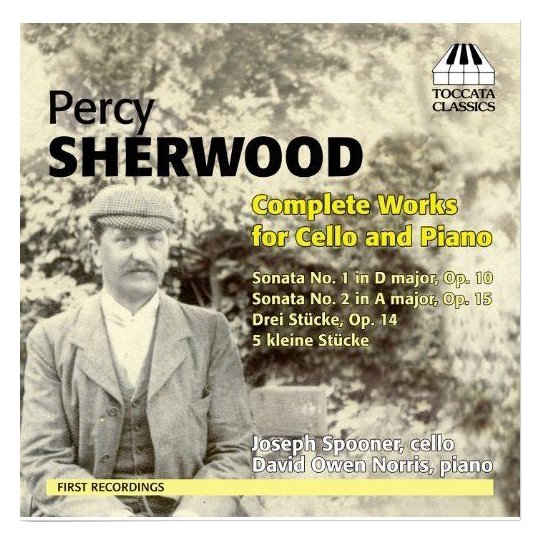 BD:
[Sighs] Mine never does.
BD:
[Sighs] Mine never does.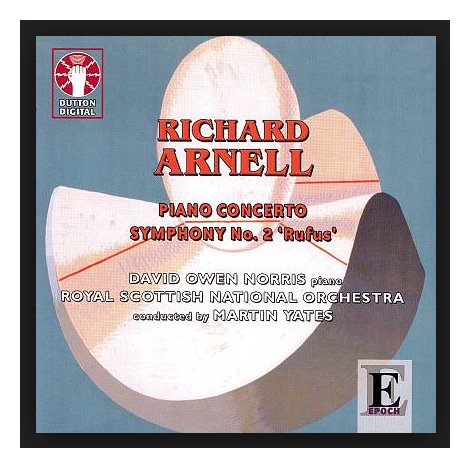 DON:
Learn languages. That’s the most important to any singer, and certainly
the most proper advice coming from me partly because I don’t know languages
well enough myself. It’s a big problem, especially for those of us whose
native tongue is English. We tend not to speak enough other languages.
The other thing would be to explore what is nice to sing. Just listen
to a lot of music that isn’t vocal.
DON:
Learn languages. That’s the most important to any singer, and certainly
the most proper advice coming from me partly because I don’t know languages
well enough myself. It’s a big problem, especially for those of us whose
native tongue is English. We tend not to speak enough other languages.
The other thing would be to explore what is nice to sing. Just listen
to a lot of music that isn’t vocal.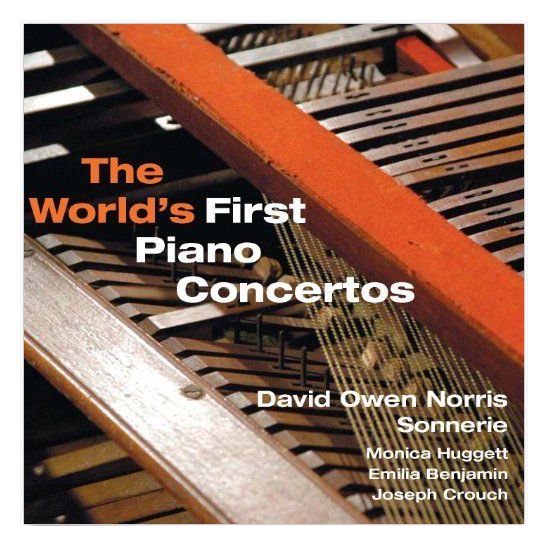 BD:
[With a gentle nudge] You’re not panting for Alzira?
BD:
[With a gentle nudge] You’re not panting for Alzira?This conversation was recorded at the Ravinia Festival in Highland Park, Illinois, on August 10, 1992. Portions were broadcast on WNIB in 1998. This transcription was made in 2016, and posted on this website at that time. My thanks to British soprano Una Barry for her help in preparing this website presentation.
To see a full list (with links) of interviews which have been transcribed and posted on this website, click here.
Award - winning broadcaster Bruce Duffie was with WNIB, Classical 97 in Chicago from 1975 until its final moment as a classical station in February of 2001. His interviews have also appeared in various magazines and journals since 1980, and he now continues his broadcast series on WNUR-FM, as well as on Contemporary Classical Internet Radio.
You are invited to visit his website for more information about his work, including selected transcripts of other interviews, plus a full list of his guests. He would also like to call your attention to the photos and information about his grandfather, who was a pioneer in the automotive field more than a century ago. You may also send him E-Mail with comments, questions and suggestions.